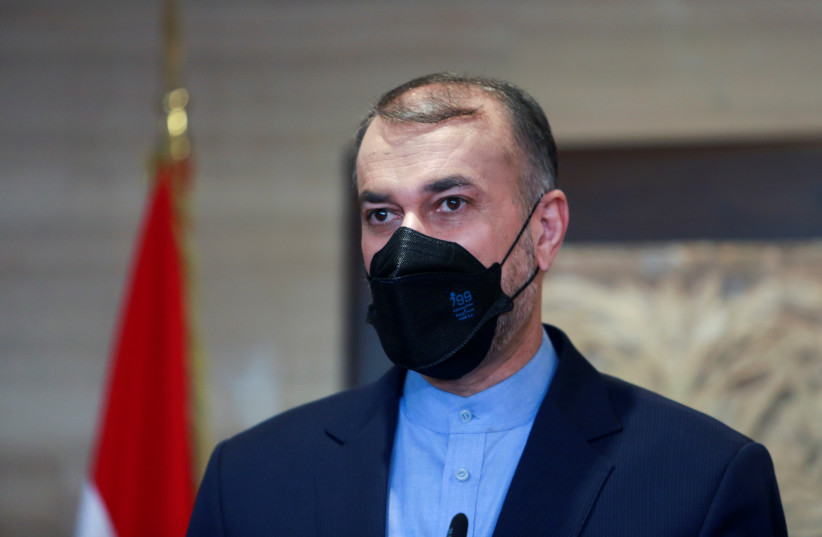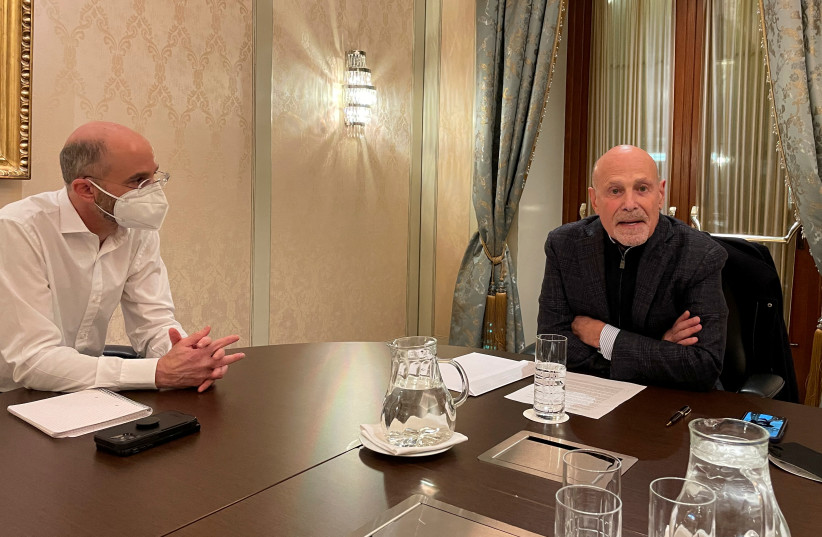Iran says the US’ restoration of sanction waivers regarding Iran’s nuclear program is not enough and that Iran has a legal right to maintain its peaceful nuclear capabilities.

Tehran dismissed as insufficient the Biden administration’s restoration of sanction waivers that would allow Russian, Chinese and European companies to carry out non-proliferation work at Iranian nuclear sites.
“The lifting of some sanctions can in itself translate into good faith,” Iranian Foreign Minister Hossein Amirabdollahian said in comments reported by Iranian media, adding, “While what is on paper is good… it’s not enough.”
The gesture comes as the United States and Iran are in the midst of the eighth rounds of indirect talks in Vienna that began in April. The talks are aimed at reviving the 2015 Iran deal, known as the Joint Comprehensive Plan of Action, which lifted sanctions against Tehran in exchange for restrictions on its nuclear program.
Amirabdollahian said one of the major issues in the Vienna talks was getting “guarantees, especially from the West, to fulfill their obligations.”
European Union foreign policy chief Josep Borrell spoke with Amirabdollahian on Saturday. He tweeted that, “We need good faith efforts from all sides and a spirit of compromise to swiftly conclude the negotiations and go back to full implementation of the JCPOA.”

“We demand guarantees in the political, legal and economic spheres. Certain agreements have already been reached,” Amirabdollahian added.
Israel opposed the deal and has opposed its revival. It now fears that the US will accept a deal that would be weaker than the original document.
The 2015 deal was designed to create a breakout time of a year before Iran would have the capacity to create a nuclear weapon.
Now Israel and others are concerned that a revived deal would leave Iran with less than half a year breakout time.
US Special envoy for Iran Robert Malley told NBC on Saturday that at present the breakout time was only a matter of weeks, a fact that made it more imperative than ever that a deal can be reached.
“It is the best way we have to put Iran’s nuclear program back in the box,” Malley said. “Our priority is to get back into the deal. If Iran is prepared to do so, we are prepared to do our share in lifting those sanctions that were reimposed by [former] president [Donald] Trump that are inconsistent with the deal,” he said.
“We have differences with Israel, but we are working hand in glove with them to make sure our common interests are defined,” Malley explained.
Concern is high, however, that the US is taking risks such as the waiving of sanctions imposed by Trump in 2020, as it did on Friday.
The waiver covered the conversion of Iran’s Arak heavy water research reactor, the provision of enriched uranium for its Tehran research reactor and the transfer of spent and scrap reactor fuel abroad.
A senior State Department Official defended the US decision on the sanctions waiver.
“We decided to restore a sanctions waiver to enable third party participation in nuclear non-proliferation and safety projects in Iran due to growing non-proliferation concerns, in particular with respect to increasing stockpiles of enriched uranium in Iran.”
The official said that without this sanctions waiver, “detailed technical discussions with third parties regarding disposition of stockpiles and other activities of nonproliferation value cannot take place.”
They went on to say that the “technical discussions facilitated by the waiver are necessary” in the final weeks of JCPOA talks, and that “the waiver itself would be essential to ensuring Iran’s swift compliance with its nuclear commitments.”
“If talks do not result in a return to the nuclear agreement, such technical discussions could still contribute to achieving our non-proliferation goals,” the official argued.
The official clarified, “This is not a signal that we are about to reach an understanding on a mutual return to full implementation of the JCPOA.
“To be clear: this is not a concession to Iran,” the official continued. “The nuclear non-proliferation and safety projects enabled by this waiver are in our vital national interest as well as the interest of the region and the world – and will continue to be regardless of the outcome of talks in Vienna.”
After Trump pulled the US out of the deal in 2018 and reimposed harsh sanctions, Iran gradually started violating the pact’s nuclear curbs. Tehran insists its nuclear program is purely for peaceful purposes.
Ali Shamkhani, the secretary of Iran’s Supreme National Security Council, said in a post on Twitter on Saturday, “Iran’s legal right to continue research and development and maintain its peaceful nuclear capabilities and achievements, side by side with its security… cannot be curbed by any agreement.”
As reported by The Jerusalem Post
